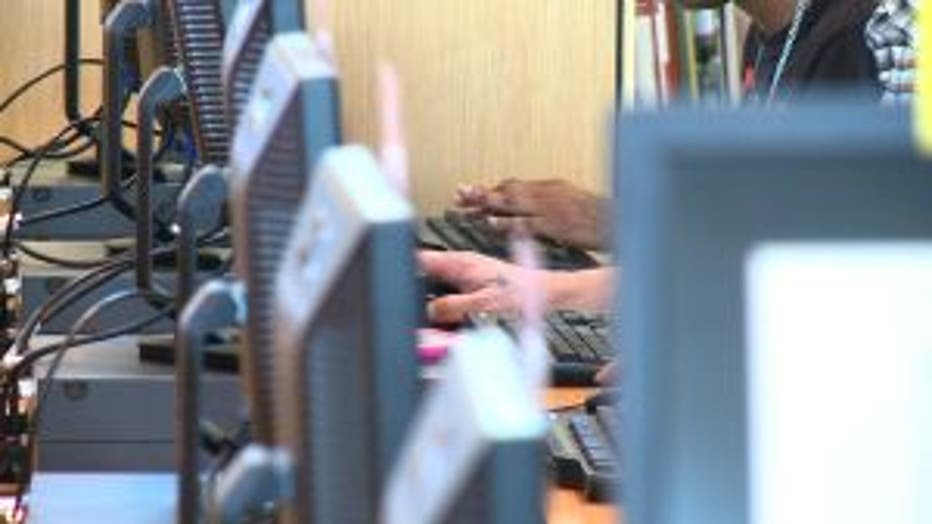Should libraries ban pornography on public computers?
SEATTLE -- There’s a controversy brewing in the Seattle Public Library system after a local mom says she saw someone watching pornography on a library computer. And it turns out there’s nothing she could do to stop it.
Well, the library says this is really an issue about censorship and they’re not going to stop their customers from accessing information that is protected by the U.S. Constitution.

Still, some parents were shocked to hear that just about anybody can look at porn – right out in the open.
“It’s just shocking, i feel like i can’t really do anything,” said patron Ebony Booker.
Nearly a dozen computers sit out in the open at the Beacon Hill library branch. The desktops are available for anyone to cruise the Web, look for a job, or even look at porn.
“I’m sorry, somebody looking at porn, that should be something you do at home alone,” said patron Fredrick Reid.
The latest complaint was made at the Beacon Hill branch. The mom said she and her kids won’t come back until the computers are moved into a separate room away from the rest of the library.
The computers in the nearby children’s section cannot access adult content from the Internet; filtering software keeps the stuff from popping up. But the other computers don’t use any censoring software at all, and that concerns some parents.
“I just feel like it's not very safe and I wouldn’t want my child to come across that information without my approval,” added Booker.
But not everyone is upset over this issue. Some people say there are legitimate, academic reasons to look up pornography on a public computer.
“A UW student was doing a paper on feminism and pornography, and they needed to do research for a dissertation,” said patron Zoe Wilson.
Seattle Public Libraries said they will call police if they suspect someone is looking at child porn or anything else that’s illegal.
In fact, in August, police arrested a 61-year-old man who they say was looking at child porn inside the Monroe library. The man was charged with viewing child pornography.
But most of the library patrons in Seattle agreed that policing the Internet should be a job for parents, not library employees.
“Libraries are not babysitters,” said Erin Okuno. “When I bring my kids here, I need to know where they are at all times and what they are looking at. Whether it’s a book, whether it’s a computer, whether it’s a magazine, until they’re old enough to make those decisions, I’m still their parent. “
And it’s not just the computers – the Wi-Fi is also free to the public without censorship.
And just like the library doesn’t censor what books people check out, they won’t censor what Web sites people look at either.

